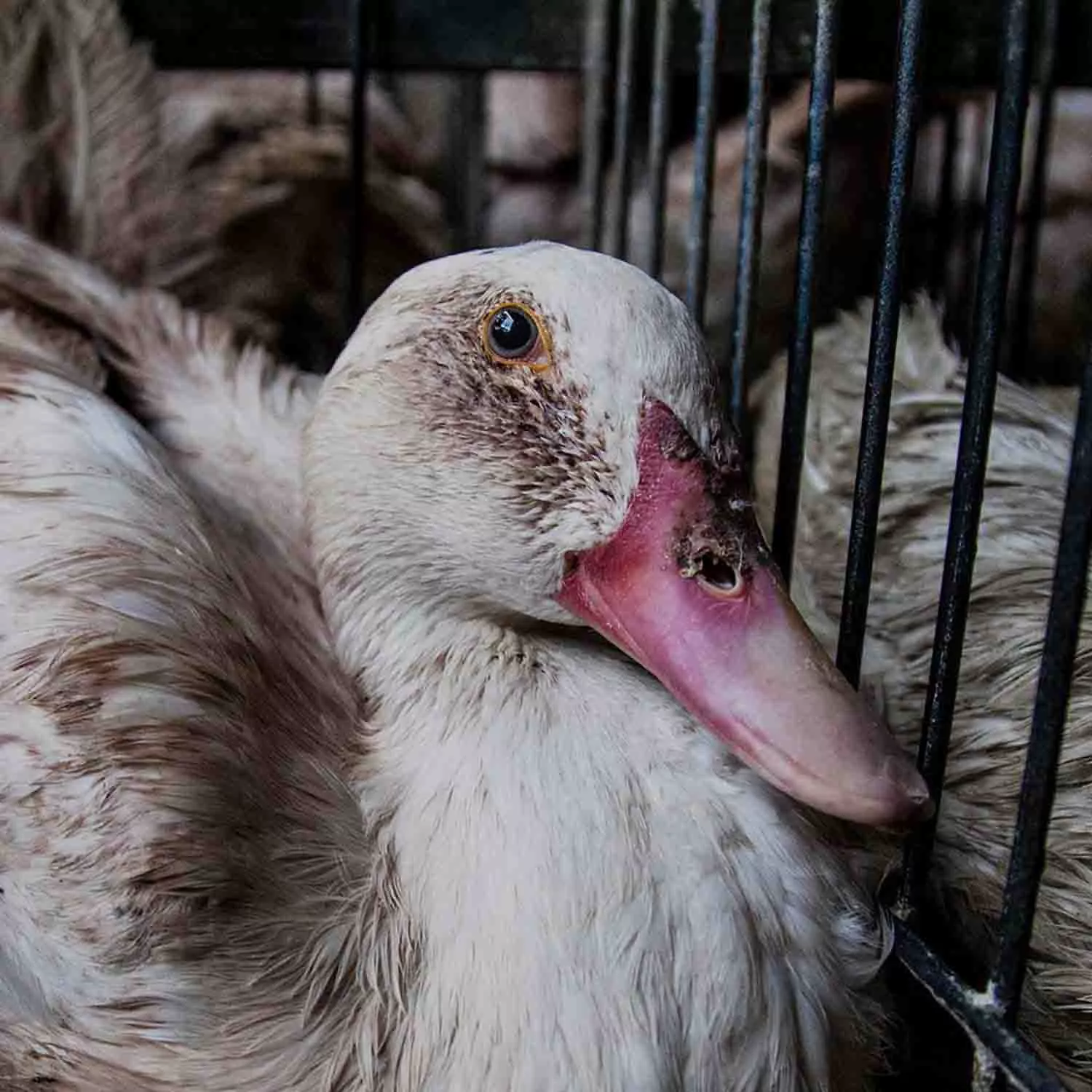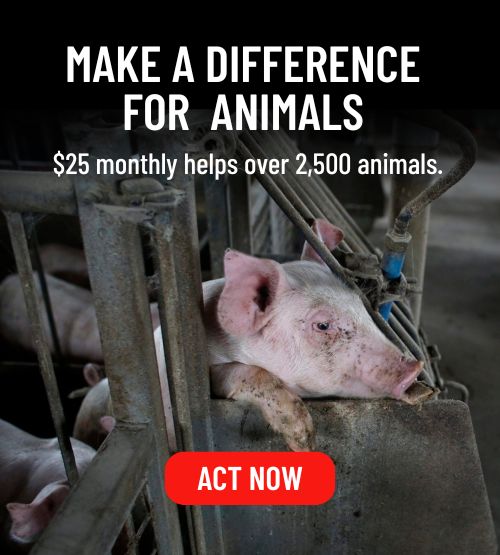

Rhode Island Residents:
Take Action to Ban Foie Gras
Rhode Island lawmakers are currently considering legislation to ban the production and sale of foie gras within the state. Foie gras, which is French for “fatty liver,” is a luxury product typically produced by violently force-feeding ducks or geese so their livers grow ten times the normal size. Force-feeding involves shoving a foot-long tube down the birds’ delicate throats and pumping food directly into their stomachs. The practice is incredibly cruel, and completely unnecessary. SB 471 / HB 5731 would prohibit this practice in Rhode Island and make it illegal to sell force-fed foie gras within the state’s borders.
Use this form to tell key Rhode Island legislators to vote YES on this bill to spare ducks and geese in Rhode Island!

WHAT IS FOIE GRAS?
Foie gras is produced by intentionally causing liver disease in birds. This is done by force-feeding birds multiple times a day, through a violent procedure known as gavage. The process is excruciating: workers shove a foot-long pipe down the birds’ esophagus and directly inject a large mass of food into their digestive systems. After enduring weeks of this torment, the bird is slaughtered and the liver is sold as foie gras.
A DISEASED INDUSTRY
Mortality rates for force-fed ducks and geese are 10 to 20 times higher than those who are not subjected to this practice. Conditions such as hepatic lipidosis, infections, and lameness – all caused by force-feeding – result in the premature death of tens of thousands of birds. Yet the industry remains profitable, so the cruelty continues.


NUMEROUS BANS ALREADY
Numerous other jurisdictions have already banned the production and sale of this cruel and unnecessary product. California, New York City, India, Brussels, Israel, and elsewhere have all voted to outlaw the product on animal cruelty grounds. Whole Foods stopped selling the product in 1997, and Postmates stopped delivering it in 2018.

The production of foie gras involves daily infliction of grotesque violence against helpless birds to create a purely luxury product. This practice is morally indefensible, and Rhode Island law should be updated to reflect this.
Sarah Hanneken
Legal Advocacy Counsel, Animal Equality

